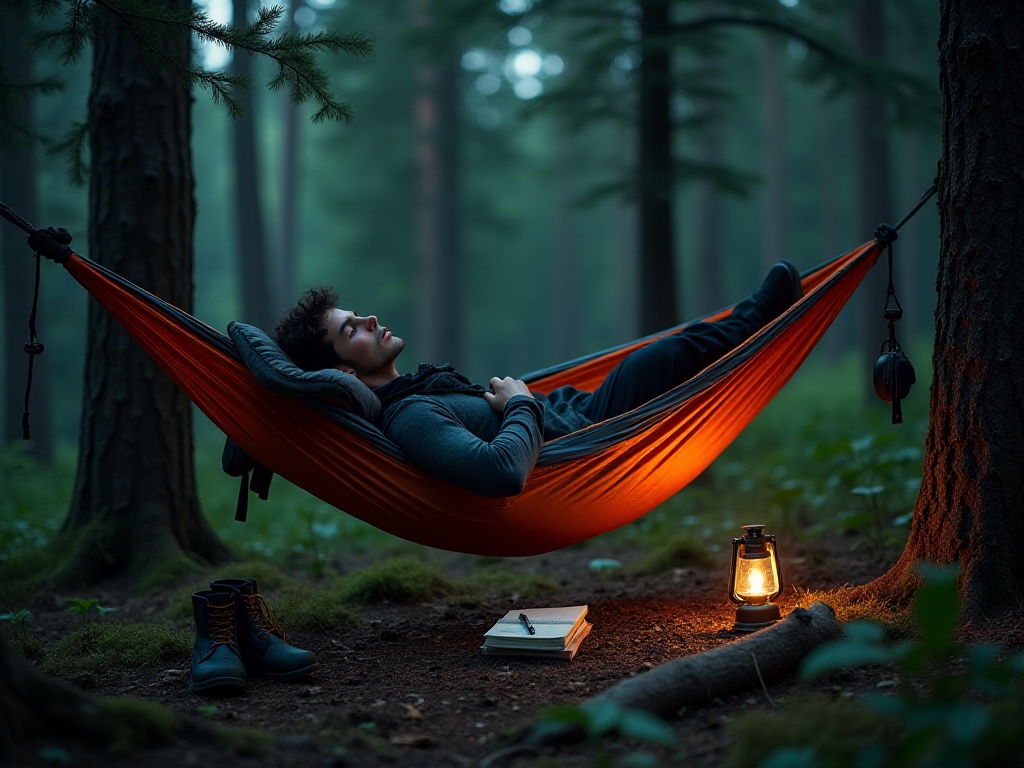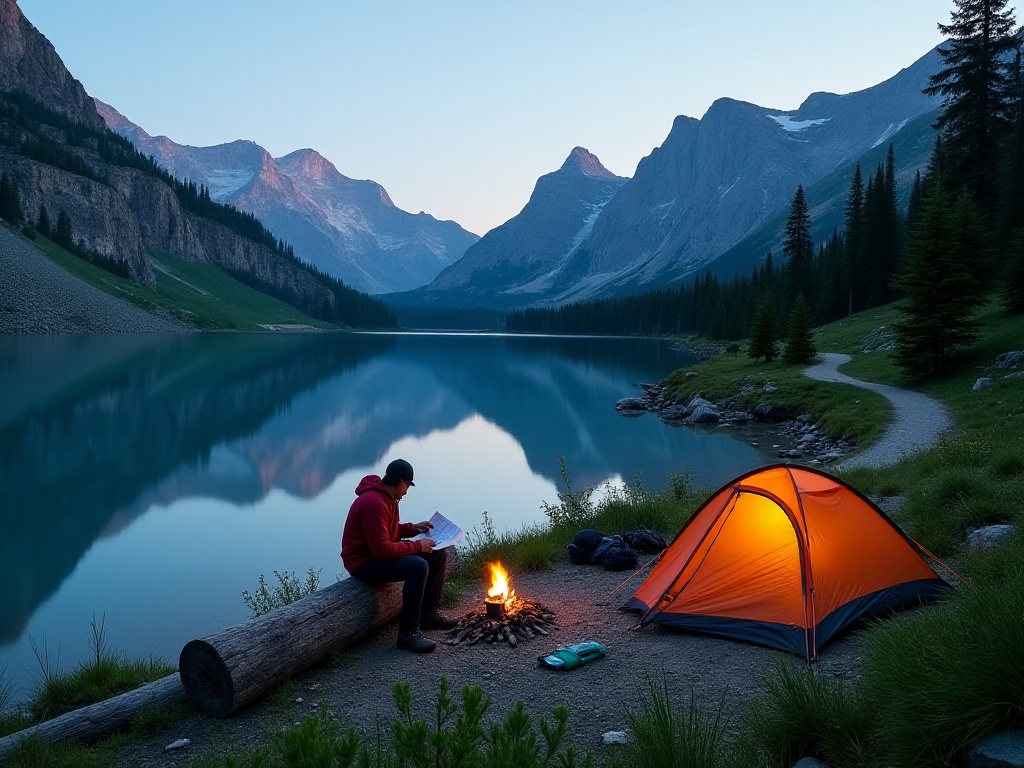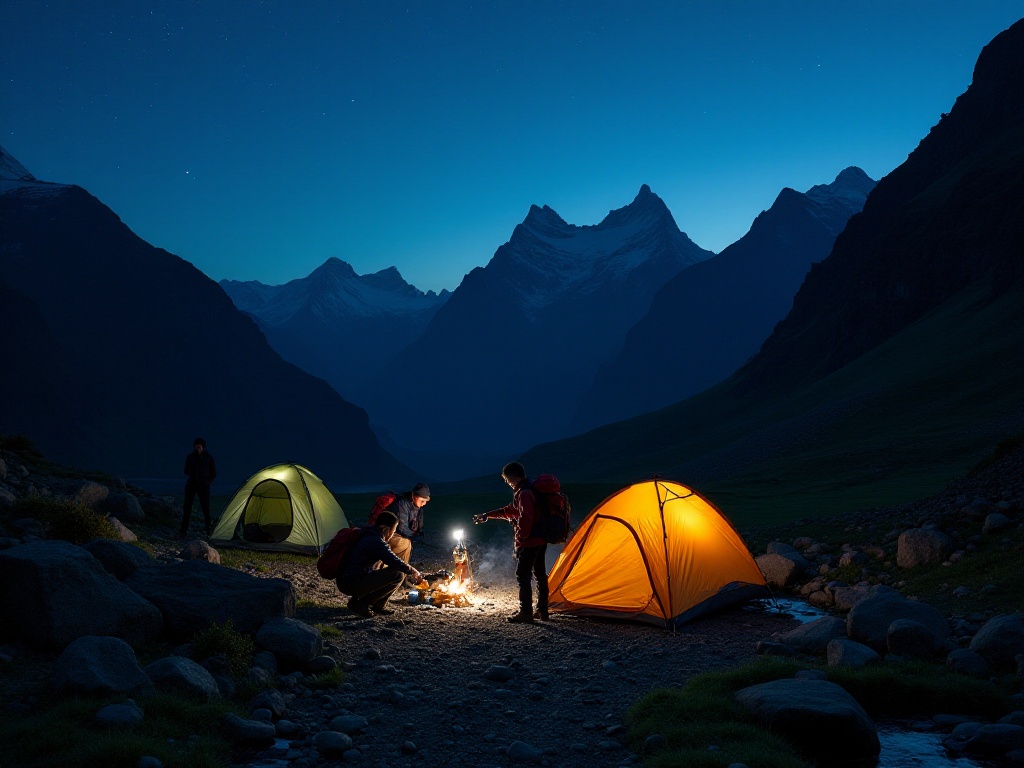The Origin of the Journey
It was a cold winter night in 2023, and I was curled up on the small sofa in my rental apartment, mindlessly scrolling through my phone. Only a dim desk lamp was on in the room, and the howling north wind outside made this weekend feel particularly lonely. As I mechanically scrolled through my phone screen, I was suddenly captivated by a blogger's European backpacking experience. Those exotic photos and inspiring written descriptions stirred my heart, making me feel as if I were standing by the Seine in Paris or along the canals of Amsterdam.
To be honest, I thought to myself: why not take a spontaneous trip while I'm still young? Despite working for three years, I felt something was missing in my life. The daily routine of commuting, overtime work, watching TV shows, and scrolling through my phone kept repeating itself. Our generation often talks about living for ourselves and being brave enough to try new things, but in reality, we often lose ourselves in comfort.
This idea took root in my mind like a seed and wouldn't stop growing. I began frantically searching for European backpackers' travel logs and studying various guides. From visa applications to route planning, from budget control to equipment selection, I recorded every detail in my notebook. I knew this wasn't just a trip, but a breakthrough and challenge for myself. After a month of preparation, I finally made up my mind: take an extended leave, pack my backpack, and wander through Europe for 50 days.
Pre-Trip Preparation
Equipment Selection
You know how important it is to choose the right backpack? I remember comparing more than a dozen backpacks at the sports store, trying each one on. The store clerk was probably getting annoyed with me, but still patiently explained the features of each backpack. It took me two whole weeks to finally decide on a 45L backpack. Why 45L? Because it could fit all my necessities while not being too heavy to carry. This capacity also met the carry-on luggage standards for budget airlines, saving quite a bit on checked baggage fees.
I remember almost losing my balance the first time I put it on. A fully packed 45L backpack weighs about 12 kilograms, which was definitely a challenge for an office worker like me who rarely exercises. But after repeatedly adjusting the shoulder and waist straps, I finally found the most comfortable position. The backpack's weight was mainly concentrated on the waist, which reduced the burden on my shoulders. I practiced walking up and down stairs at home with this pack for several days, earning strange looks from my neighbors.
My packing list was actually quite simple: three quick-dry T-shirts, two quick-dry pants, one fleece jacket, and one waterproof shell jacket. These clothes, when combined, were sufficient for the weather changes during the European spring-summer transition. The advantage of quick-dry clothing is that you can wear them the next day after washing at night, they don't wrinkle easily, and they're convenient to pack. I also prepared one pair of hiking boots and one pair of light sneakers, since walking is necessary in many places in Europe.
Besides clothing, I brought some essentials: power adapters, power banks, a basic medical kit, passport copies, etc. Worth mentioning specifically is my camera - although phone cameras are very powerful nowadays, I still chose to bring a mirrorless camera. During the process of preparing this equipment, I increasingly understood the importance of "minimalism." Each additional item meant that much more weight to carry. I checked everything three times to ensure each item was essential.
Route Planning
My journey spanned 8 countries: starting from Paris, France, through Belgium, Netherlands, Germany, Czech Republic, Austria, Switzerland, and back to France. This route was designed considering transportation convenience and attraction distribution, allowing me to appreciate Europe's most classic scenery while experiencing authentic local culture.
When planning the route, I deliberately avoided peak tourist season. I chose to depart in late spring/early summer when temperatures are pleasant, there are fewer tourists than in summer, and accommodation and flight prices are relatively cheaper. I used a spreadsheet to record each day's itinerary, including accommodation locations, transportation methods, and attractions that needed advance booking. But I also left myself some flexible time, as travel always brings unexpected surprises.
To save on budget, I chose some relatively cheaper transportation options. For example, from Paris to Brussels, I chose an overnight bus. Although it took 6 hours, it saved one night's accommodation cost. When planning routes, I also paid special attention to free activities. For instance, many European museums have free admission days each month, and some cities offer free walking tours.
Travel Chronicle
Accommodation Experience
During these 50 days, I tried various types of accommodation. The cheapest was a youth hostel in Amsterdam, an 8-bed mixed dorm for only 15 euros per night. Initially, I was a bit worried about safety, but soon found these concerns unnecessary. The hostel not only had lockers for valuables, but most people staying there were backpackers like me, and everyone was very friendly.
I remember one night, my bed was above an Australian girl's. She was traveling around the world and had been on the road for over half a year. We talked a lot, from our respective cultures to life aspirations. This cross-cultural exchange was incredibly enriching and helped me make new friends.
The most expensive accommodation was an independent room in Paris, costing 80 euros. Honestly, this was a relatively cheap option I found in Paris. Though the room was small, the location was great, near Montmartre. Opening the window in the morning, I could see the Parisian rooftop scenery. That night, I sat by the window, drinking supermarket wine while watching the sunset over Paris - that feeling was truly unforgettable.
But the most memorable accommodation experience was with a German couple I met in Munich. I got lost in the English Garden that day, and while checking my map, they came over to help with directions. As we chatted, they learned I was a backpacker and invited me to stay at their home. I stayed with them for three days, giving me an in-depth experience of German daily life.
Every morning, the hostess would prepare traditional German breakfast: various breads, ham, cheese, and fresh coffee. The host was a history enthusiast who showed me many lesser-known places in Munich. In the evenings we cooked together - I made them a simple Chinese meal, and they taught me how to cook traditional German dishes. This family-style experience let me experience the most authentic German life.
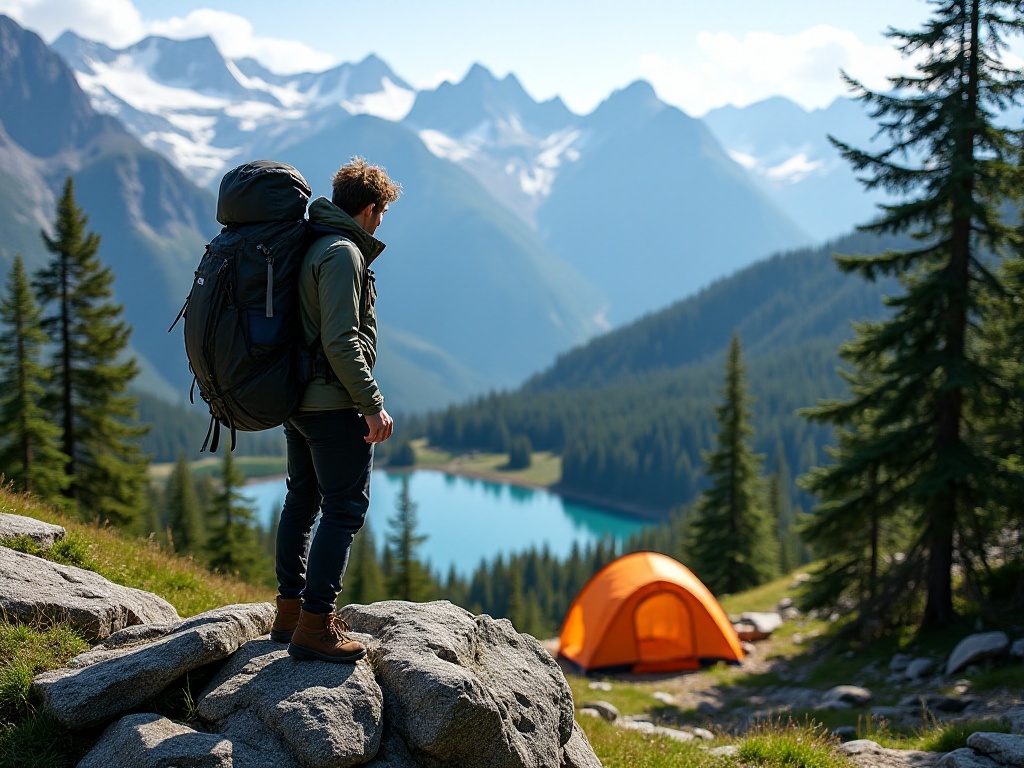
Transportation Choices
Europe's transportation system is very developed, but prices can be steep. I mainly relied on a Eurail Pass to save expenses. This pass allowed unlimited train travel across Europe for two months, and although the initial investment was large (499 euros), it was worth it when averaged out.
I still remember my first experience using the Eurail Pass. The express train from Amsterdam to Berlin took a full 5 hours. I deliberately chose a window seat to watch the scenery fly by: Dutch tulip fields, German forests and towns. The train facilities were excellent, with a dining car selling hot coffee and sandwiches, and free WiFi.
Besides trains, I also tried other transportation methods. For example, in Prague, I bought a three-day pass that allowed unlimited tram and metro rides. Prague's trams are very distinctive, with vintage carriages traveling through narrow streets, making them a great way to experience the city's character. In Switzerland, I also experienced the famous scenic trains - though expensive, the Alps views along the way were unforgettable.
Sometimes to save money, I would choose overnight buses. Though not very comfortable, they saved a night's accommodation cost. I carried an inflatable pillow and eye mask, which proved very useful during long journeys.
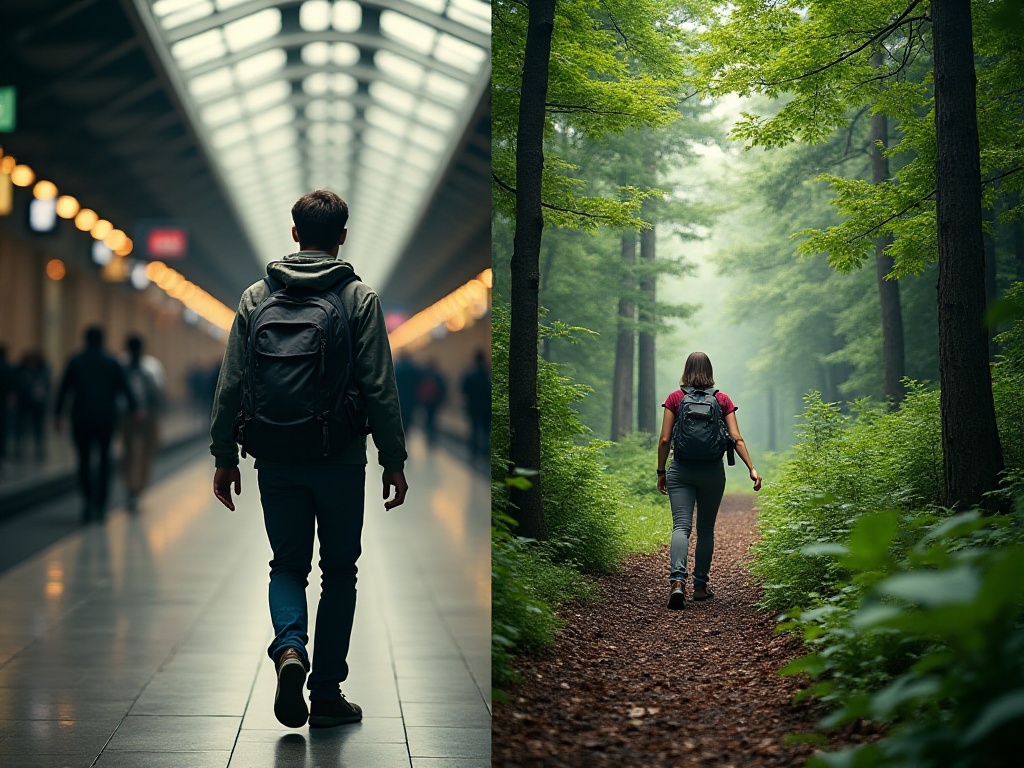
Food Exploration
In a basement restaurant in Prague, I tried svíčková (roast beef with cream sauce) for the first time. I discovered this restaurant while wandering through Prague's Old Town - it was in a basement with an old wooden sign at the entrance.
Pushing open the heavy wooden door, I was greeted by the rich aroma of beer and food. The restaurant had a vintage decor, with old photos hanging on stone walls and wooden tables and chairs that looked well-used. The owner, a friendly Czech man, gave me extra bread and offered me his treasured Czech beer when he learned I was a Chinese backpacker.
That meal helped me deeply understand Czech culinary traditions. The roast beef was tender, perfect with the special cream sauce and black bread. The owner taught me the correct way to eat it: tear the bread into small pieces, dip in the sauce, and eat with the meat.
In other cities, I also tried many local specialties. Like Dutch pancakes from Amsterdam street vendors - crispy outside, soft inside, sprinkled with powdered sugar and perfect with coffee for afternoon tea. In a century-old Viennese café, I tasted authentic Viennese coffee and Sacher torte in an elegantly classical environment that made the afternoon tea extra special.
To save money, I often bought groceries and cooked myself. Youth hostels usually had communal kitchens. I would buy bread, ham, vegetables, and make simple sandwiches or salads. Sometimes I'd meet new friends in the kitchen, cooking together and sharing food - these experiences were especially warm.
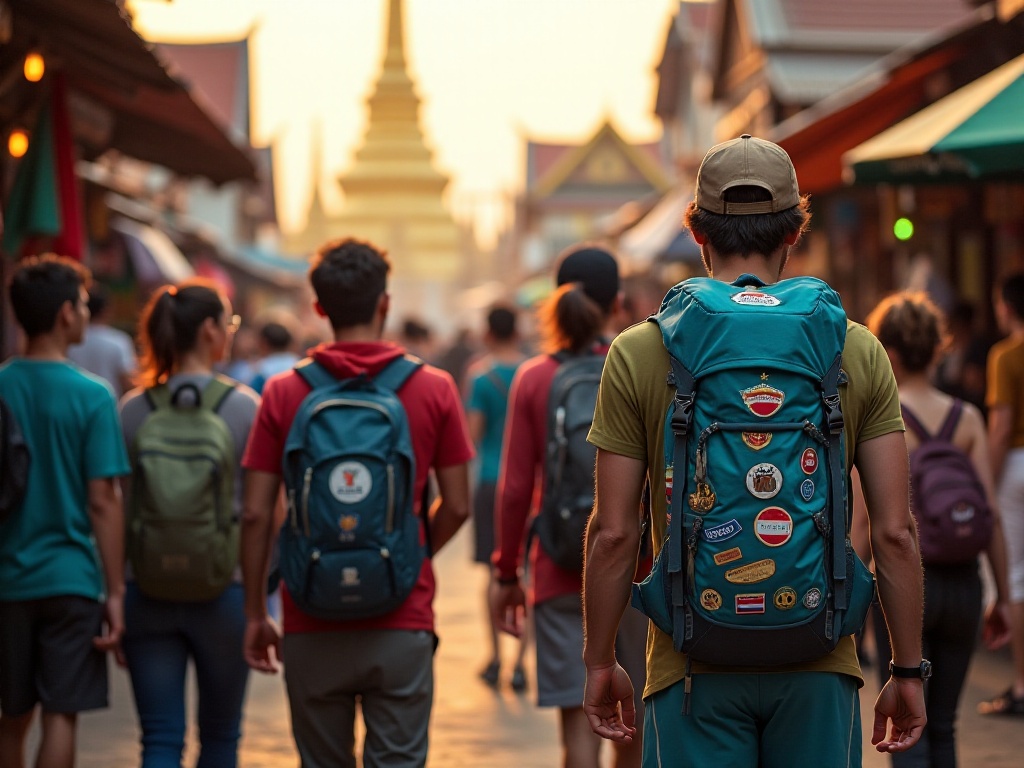
Unexpected Gains
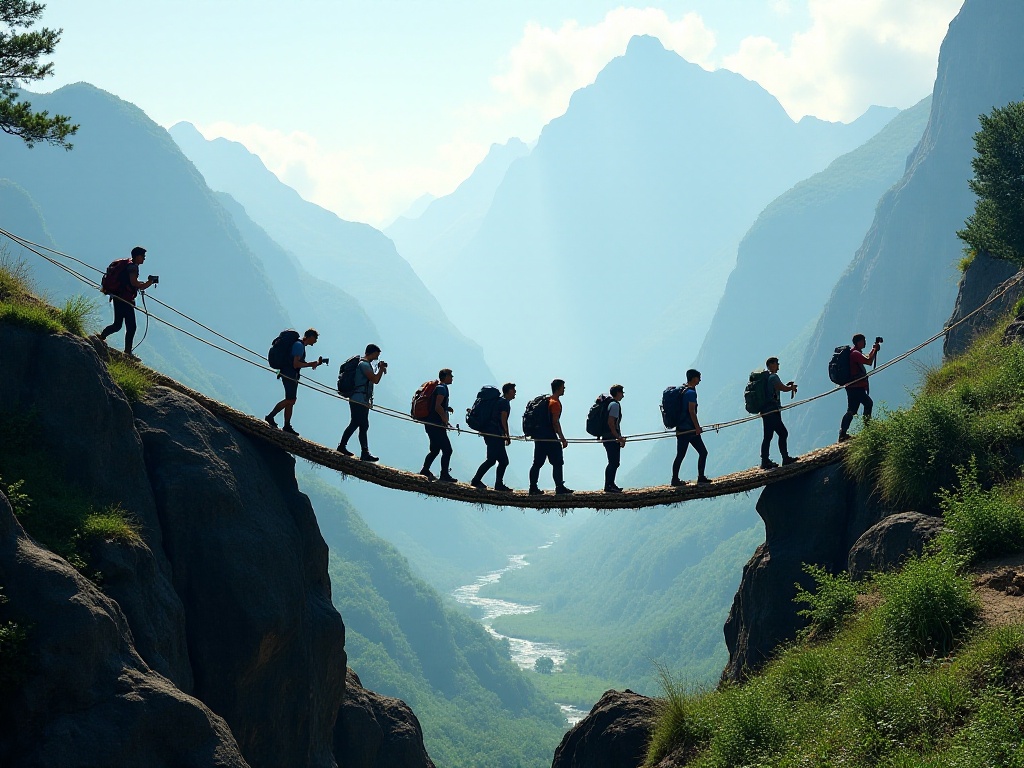
Cultural Shock
In Berlin, I visited the East Side Gallery, a preserved section of the Berlin Wall covered with artists' works. Standing there, I suddenly understood why they say travel can change one's worldview. The traces of history were right before my eyes, making one contemplate the preciousness of peace.
This section of the Berlin Wall stretches 1.3 kilometers, making it the world's longest outdoor gallery. Each mural tells a story - some about the longing for freedom, some calling for peace, others recording historical scenes. The most famous is the "Fraternal Kiss," depicting the kiss between East German leader Honecker and Soviet leader Brezhnev.
I stood by the wall for a long time, watching passing tourists. Some took photos, some gazed silently, and elderly people explained the history to children. An elderly German told me he lived on the eastern side of the wall in his youth, seeing it daily but never daring to approach. Now the wall has fallen, but this history should never be forgotten.
In Amsterdam, I visited Anne Frank House. The cramped secret annex, the photos on the walls, the famous diary - all made one feel the impact of war on ordinary people. Before leaving, I wrote in the memorial book: "Peace doesn't come easy, we must cherish our present life."
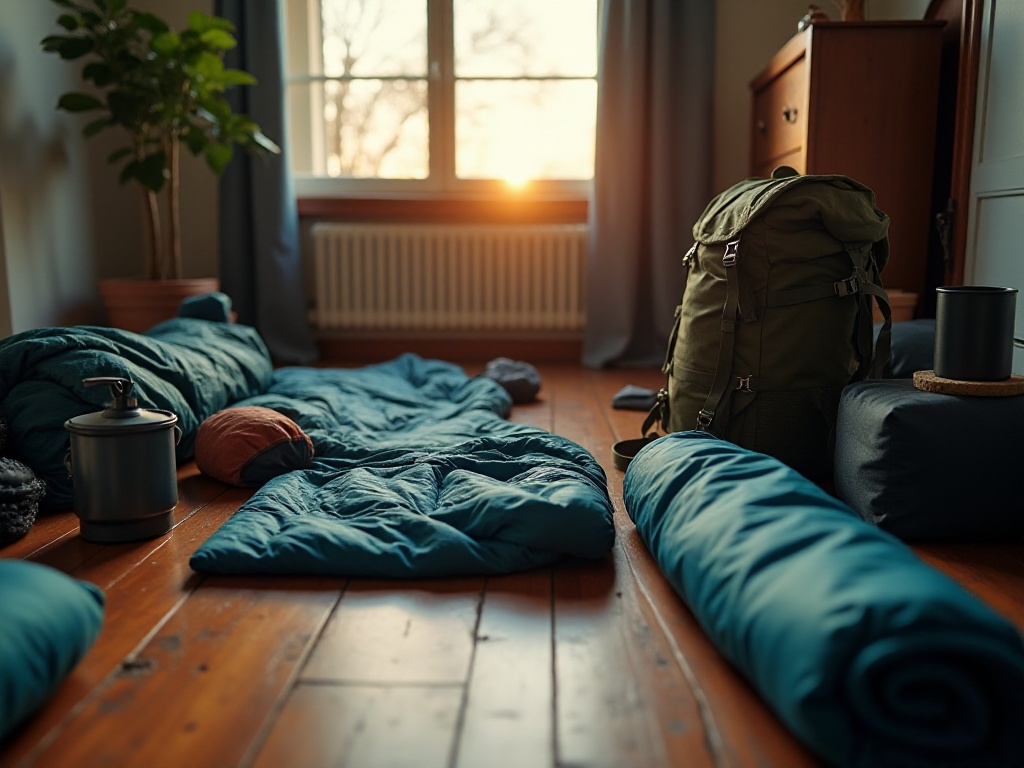
Life Insights
These 50 days taught me that backpacking isn't just a way of travel, but a life attitude. It taught me how to live simply, make friends with strangers, and stay optimistic in difficult situations.
I remember getting lost in Venice's complex alleyways on a rainy day. My phone was dead, I couldn't check the map, and I was surrounded by unfamiliar Italian signs. When I was at a loss, a local elderly lady came to help. Despite the language barrier, she used gestures and simple English words to help me find my way back to the hostel. This made me realize there are more good people in the world, and help will come if you maintain an open and friendly attitude.
In a Swiss town, I encountered a train strike. My planned itinerary was completely disrupted, but this unexpected event gave me a chance to deeply experience the town's life. I helped at a local bakery, met interesting people, and learned to make traditional Swiss bread. This experience taught me that unplanned events can sometimes bring better rewards.
Most importantly, this journey helped me rediscover myself. Before traveling, I always thought I was introverted and unsociable. But during the trip, I found I could quickly adapt to new environments and actively talk with strangers. I learned to solve problems independently and became more confident.

Practical Advice
If you want to try backpacking, my advice is to start small. Try spending a weekend in a nearby city with your backpack first. Once you're comfortable with this style, consider longer trips to more distant places.
During preparation, make detailed budget plans. My 50-day trip, including flights, accommodation, transportation, food, and tickets, cost about 30,000 RMB total. While this seems like a large sum, averaged over 50 days, the daily cost wasn't high. The key is learning to be economical - choosing budget accommodation, using public transportation, cooking your own meals, etc.
For packing, follow the principle "if you don't need it, don't bring it." Many first-time travelers pack too much, creating unnecessary burden. Remember, you can buy almost anything you need in Europe.
Safety is also important. Get travel insurance, carry copies of important documents, and keep valuables secure. Stay alert in unfamiliar places, but don't be overly nervous. Most places and people are friendly.
Finally, and most importantly: maintain an open and accepting attitude. You'll inevitably encounter cultural differences and unfamiliar situations - learn to understand and accept them. Every place has its unique charm; the key is discovering and appreciating it.
Remember, the most important part of backpacking isn't reaching the destination, but what you gain along the way. The conversations with strangers, unplanned explorations, and sudden moments of emotion make the journey precious. These 50 days taught me that life isn't just about 9-to-5 work, but also about poetry and distant places. It changed how I see the world and changed me.
Looking back, that decision made on a cold winter night was one of my best choices in recent years. If you're hesitating about taking a spontaneous trip, my advice is: while you're young, be brave and go! The world is bigger and more beautiful than you imagine.


